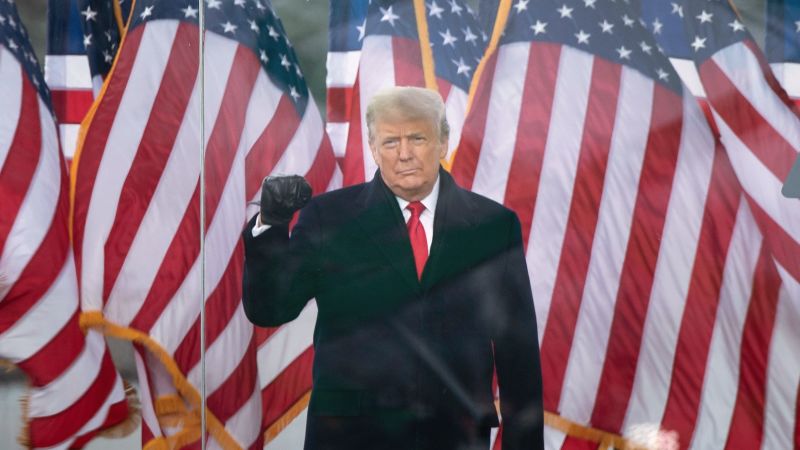The Department of Justice has filed a lawsuit against former President Donald Trump, alleging that he violated the law by pressuring Georgia officials to overturn the 2020 election results. In response, Trump has claimed immunity from this lawsuit, arguing that his actions were within the scope of his duties as President. This claim of immunity is being taken seriously by the Supreme Court, as it raises important questions about the limits of presidential power and accountability. The Court is now faced with deciding whether Trump can be held personally liable for his actions while in office.
Trump’s argument for immunity is based on the idea that any actions taken by a President in pursuit of their duties are shielded from legal scrutiny. This argument is not without precedent, as previous Presidents have also claimed immunity in certain cases. However, the unique circumstances of Trump’s case will require the Court to carefully consider the implications of granting him total immunity. This is especially true given the serious nature of the allegations against him, including those of election interference and abuse of power.
The Court’s consideration of Trump’s immunity claim is significant because it could have far-reaching implications for the balance of power between the executive and judicial branches of government. Granting Trump total immunity would effectively shield future Presidents from legal consequences for any actions taken while in office, no matter how egregious. This could set a dangerous precedent and undermine the principle of accountability that is essential to a functioning democracy. On the other hand, denying Trump immunity could signal that the President is not above the law and must be held accountable for their actions like any other citizen.
The decision of the Supreme Court in this case has the potential to shape the future of presidential power and accountability in the United States. If the Court rules in favor of Trump’s immunity claim, it could embolden future Presidents to act with impunity, knowing that they cannot be held personally liable for their actions while in office. This could undermine the checks and balances that are meant to prevent abuses of power and protect the integrity of the democratic system. On the other hand, if the Court rejects Trump’s claim of immunity, it could reaffirm the principle that no one, not even the President, is above the law.
In the end, the Supreme Court’s decision on Trump’s immunity claim will have far-reaching consequences for the future of American democracy. It will determine whether the President can be held personally accountable for their actions while in office, or whether they are shielded from legal scrutiny by the cloak of immunity. This decision will not only shape the legacy of Donald Trump, but also set a precedent for how future Presidents are held accountable for their actions. The Court’s ruling will be a defining moment in the ongoing debate over the limits of presidential power and the principle of accountability in a democratic society.













